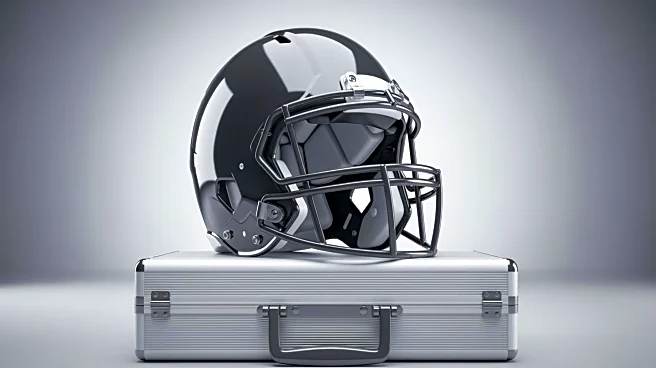What's Happening?
The Miami Dolphins are facing significant financial hurdles in potentially moving on from quarterback Tua Tagovailoa. His contract, which includes substantial dead-cap penalties, makes it difficult for
the team to release or trade him. Cutting Tagovailoa would result in record-setting dead-cap hits, while trading him would still require the Dolphins to absorb a significant portion of his salary. Despite his injury history and leadership concerns, NFL insiders suggest Tagovailoa is likely to remain with the team due to these financial constraints.
Why It's Important?
The Dolphins' situation with Tagovailoa highlights the financial complexities of NFL contracts and the impact on team strategy. The substantial dead-cap penalties limit the team's flexibility in roster management and could affect their ability to acquire new talent. This scenario emphasizes the importance of contract negotiations and the long-term implications of player agreements on team finances and competitiveness.
What's Next?
The Dolphins may need to explore alternative strategies to manage Tagovailoa's contract, such as restructuring or seeking trade partners willing to absorb part of his salary. The team will also need to assess their quarterback options for the future, potentially prioritizing the development of a new long-term solution. These decisions will be crucial in shaping the Dolphins' competitive prospects in the coming seasons.
Beyond the Headlines
Tagovailoa's situation raises broader questions about player health and contract ethics in the NFL. His injury history and potential for early retirement due to concussions highlight the need for improved health protocols and support for players. The financial implications of his contract also reflect the challenges teams face in balancing player welfare with business interests.









